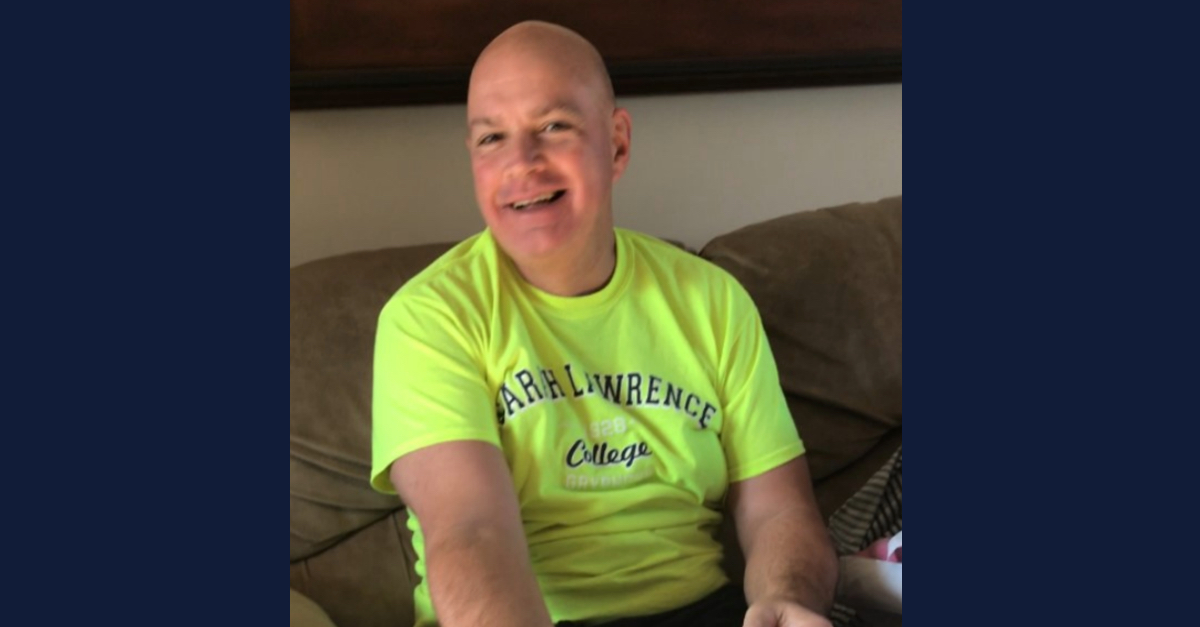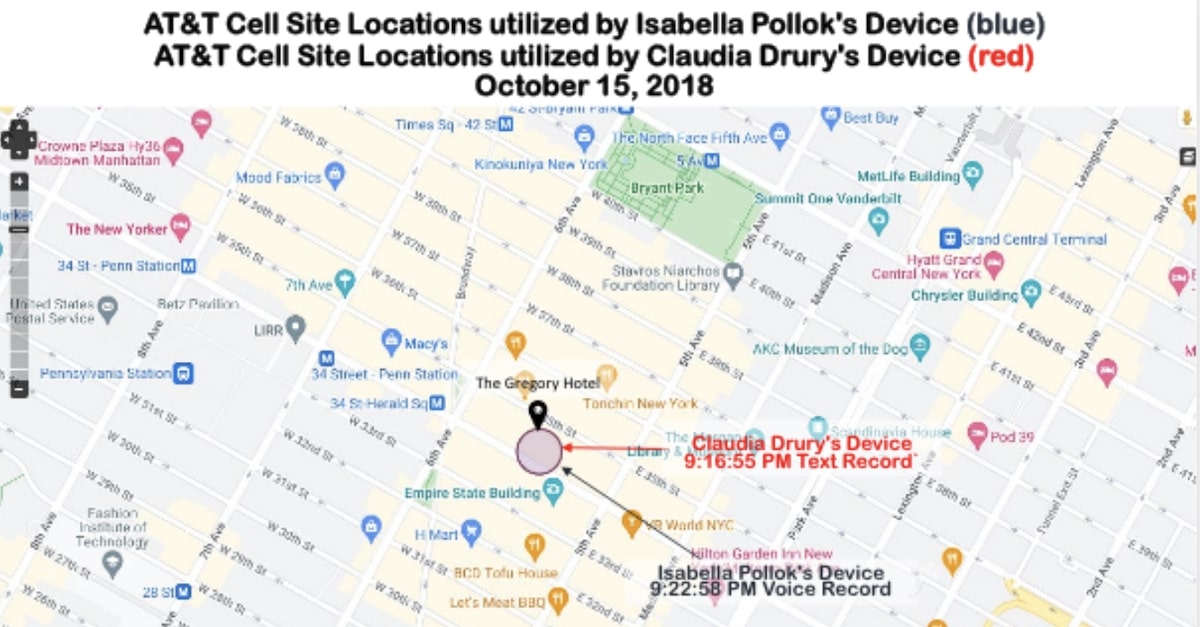
Larry Ray in a Sarah Lawrence College T-shirt.
Accused Sarah Lawrence sex “cult” leader Larry Ray told a federal judge that he will not to testify in his own defense. Ray’s attorneys called only two witnesses before the defense rested on Monday.
One of the witnesses, Ray’s attorney Glenn Ripa, testified that he advised his client that he could collect money from his alleged sex trafficking victim—and that money wouldn’t be taxable.
For the better part of a month, Ray has faced trial on a 17-count indictment accusing him of racketeering, sex trafficking, forced labor, tax evasion, extortion and other crimes. Prosecutors say that Ray victimized students at his daughter’s college, systematically extracting false confessions and ruthlessly collecting on imagined debts. One of the students, Claudia Drury, testified that Ray forced her into prostitution and took $2.5 million of her earnings over the course of four years.
As the defense case began on Monday, Ray’s attorneys focused squarely on that testimony, which forms the basis of the government’s sex trafficking charge.
On Friday, Ray’s legal team previewed a startling defense—that Ripa told the defendant that he could accept Drury’s prostitution money as “compensation” for her having supposedly poisoned him.
Ripa told a jury on Monday that he did give such advice, and he knew how she made her money.
“What was your understanding about how she made money?” Ray’s defense attorney Neil Kelly asked.
“She was a prostitute,” Ripa responded.
A former IRS agent, Ripa claimed that he entered into a retainer agreement with Ray in 2014. Ripa said that he didn’t keep billing records and that Ray paid in cash. When representing Ray in a housing court proceeding, Ripa said, Drury testified that she poisoned his client.
Other than Drury’s own words, no evidence has been introduced at trial that she, in fact, poisoned Ray. Drury and other witnesses have testified that Ray would coerce such confessions in order to extort them of money. On cross-examination, the government made a point to note that.
“Did he provide you with any medical bills?” the prosecutor asked.
“No, he did not,” Ripa conceded.
Ripa also testified that he wrote to the U.S. Attorney’s Office for the Southern District of New York to investigate the supposed poisoning. The lawyer also asserted that he was unaware of the scope of the allegations against his client.
When asked whether Ray inquired whether he could beat up Drury and force her into sex work to get the money, Ripa replied: “Absolutely not.”
Ripa gave the same answer when asked if he knew that his supposed tax advice involved millions of dollars.
Prosecutors initially sought to bar Ripa’s testimony, which the defense sought to use to fight Ray’s charges of extortion, extortion conspiracy, using interstate commerce to promote unlawful activity, money laundering and tax evasion. Notably, Ray’s attorneys do not assert it as a defense against the sex trafficking charge.
Ultimately, U.S. District Judge Lewis Liman allowed Ripa to provide narrow testimony on the tax evasion charges.
To back up Drury’s testimony, prosecutors introduced evidence tracking Ray’s movements with location data from cell phone towers. Drury testified that she gave Ray money that she made from sex work, and that his accused co-conspirator Isabella Pollok sometimes picked up the cash.
A government witness mapped out dates and times reflecting when they believe these pickups happened, based on their text messages and other extrinsic evidence.

On Oct. 15, 2018, Drury testified, Ray spent seven to eight hours interrogating, suffocating, choking and abusing her inside a room of midtown Manhattan’s Gregory Hotel, in what prosecutors describe as he “long night of torture.”
Drury said that Pollok recorded her torment, and her cell site data places her within close proximity of the hotel. Pollok, who is being tried separately later this year, has pleaded not guilty to her charges.
Ray’s defense witness tried to undermine some of the maps drawn up by the government. During cross-examination, the witness acknowledged that some of the government’s evidence that he was called to critique was accurate. The witness also disclosed that he was paid $450 per hour, but he did not know how many tens of thousands of dollars he ultimately billed.
Three of the other alleged victims—Santos, Felicia and Yalitza Rosario—belonged to same family and testified that they became suicidal in Ray’s orbit. Their mother, Maritza Rosario, testified that her son Santos was constantly trying to borrow money from her during this time frame.
This is a developing story.
(Photo via DOJ)